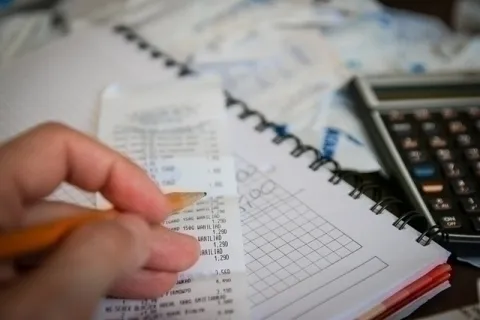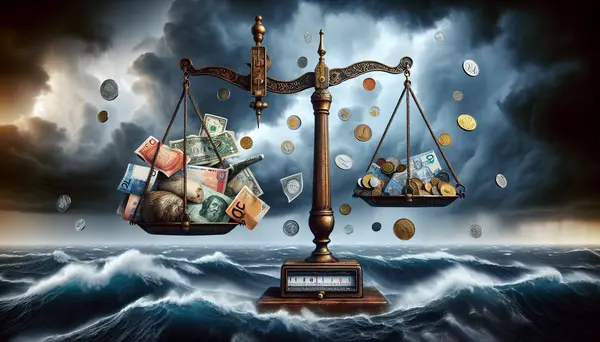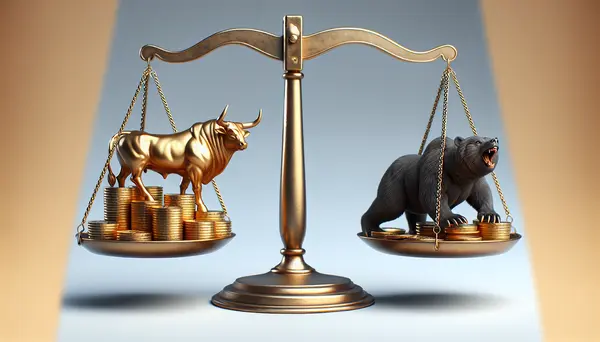- Recognize that loss is a natural part of trading and use it as a learning opportunity to improve future strategies.
- Maintain a trading journal to document your decisions and emotions, helping to analyze and overcome feelings of regret.
- Stick to a well-tested trading plan with clear risk management rules to minimize regret from impulsive decisions.
Have you ever made a trade that turned out to be a bad move? You know, that sinking feeling when you check your portfolio and watch as your investment goes down the drain? It's not a great feeling, right? Well, my question is, how do you deal with the regret that comes after a losing trade? Do you beat yourself up over it, or have you found a way to move on and learn from your mistakes? I'm struggling to let go of my last bad trade, and I'm looking for some advice on how to handle the emotional aftermath. Any tips or tricks would be greatly appreciated. Thanks!
Hey there StarGazer89,
I know that feeling all too well. Losing a trade can be a real gut-punch, especially if you put a lot of money into it. As someone who has made some bad moves myself, I can say that it's tough to deal with the regret that comes afterwards.
The way I see it, though, is that every losing trade is an opportunity to learn and grow. It's easy to get down on yourself, but what good does that really do? Instead, I try to look at each mistake as a chance to understand what went wrong and figure out how I can do better in the future.
One thing that helps me is to maintain perspective. It's easy to get caught up in the moment and think that one loss is the end of the world, but that's rarely the case. In the grand scheme of things, one trade is just one tiny blip on the radar, and there will be plenty of other opportunities to make up for the loss.
Another thing that helps is to talk to other traders. There's a lot of value in getting different perspectives and hearing how other people have dealt with similar situations. That's one of the reasons why I love forums like this one - it's a great way to connect with like-minded investors and bounce ideas off of each other.
Ultimately, though, the best way to deal with the emotional aftermath of a bad trade is to just keep moving forward. Don't beat yourself up over it, don't dwell on it for too long - just learn what you can from the experience and use that knowledge to make better decisions going forward.
Hope that helps, and good luck!
As a counter question: How do you deal with risks when making trades or investments? Do you have a certain strategy or approach that you follow?
Hello there, StarGazer89 and WorldExplorer111! I completely understand where you're coming from. Making a bad trade is definitely not a great feeling, and dealing with the regret that comes afterwards can be tough.
Personally, I try to approach every trade with a clear and rational mindset. I research the market and the company I'm interested in investing in and try to make informed decisions based on facts and figures rather than emotions. However, no matter how much research you do, there is always a risk involved in trading and investing. That's why I always invest in a diversified portfolio to minimize the potential impact of a single bad trade.
In terms of dealing with the emotional aftermath of a bad trade, I find that it's helpful to have a plan in place beforehand. I set a stop-loss limit and try not to go beyond it. This helps me maintain a level head and avoid making rash decisions in the heat of the moment.
Another thing that helps me is to take a step back and evaluate the situation objectively. I try to look at what went wrong and what I could have done differently. This helps me learn from my mistakes and make better decisions in the future.
All in all, I think it's important to approach trading and investing with a well-defined strategy and mindset, and to continually learn and adapt as you go. As WorldExplorer111 mentioned, there's value in connecting with other traders and investors and bouncing ideas off of each other. This can help broaden your perspective and give you a different way of looking at things.
Thanks for the great discussion, guys! As another counter question, how often do you revisit your trading strategy and adjust it based on your experiences?
Hey AdventureSeeker303! I completely agree with your approach to trading and investing. Having a rational mindset and doing thorough research is definitely important to make informed decisions. And you're right, no matter how much research we do, there's always a risk involved.
Diversifying your portfolio is a great way to minimize the impact of a single bad trade. By spreading your investments across different assets or sectors, you reduce the potential loss if one of them doesn't perform well.
Having a plan in place, like setting a stop-loss limit, is also crucial. It helps prevent impulsive and emotionally-driven decisions in the heat of the moment. Taking a step back and evaluating the situation objectively is a smart move. Learning from our mistakes and making adjustments to our strategy is the key to improving our trading skills.
As for your counter question, I believe that revisiting and adjusting our trading strategy is an ongoing process. The market is constantly changing, and what works today may not work tomorrow. So it's important to regularly assess our strategy and make adjustments based on our experiences and market conditions. Personally, I like to review my strategy every few months or whenever I notice a significant change in market trends.
Thanks for the insightful discussion, AdventureSeeker303! It's always great to exchange ideas and learn from each other. Do you have any specific techniques or resources you use to evaluate and adjust your trading strategy?
Honestly? I think most of this "strategy adjustment" talk is just hot air. Markets change on a dime, and there's no way to accurately predict them. Best we can do is brace for impact and clean up after. Has anyone actually seen success from routine reevaluation and adjustment of their strategies?
I disagree. There's no guaranteed strategy to make profitable trades every time, no matter how much you adjust it. It's mostly luck and timing.
How can we really know for certaint that it's luck and timing? Are there no concrete proven strategies for handling losses on trades?
Absolutely not! I think we need to be careful of falling into the trap of assuming trading is purely about luck or timing. Sure, there's an element of chance, but there's also a lot of skill, strategy and research involved. We can mitigate Losses by properly managing risk and setting clear entry and exit points for all our trades based on a thoroughly developed strategy. Analyzing past performance, understanding overall market trends, and keeping up-to-date with any news affecting the stocks we're trading are good strategies. Losses are part of the game, it's about how we manage those losses and learn from them. It's equally important to remain psychologically prepared for losses and not let them deter us. Make sure not to invest money you can't afford to lose, and always remember the mantra: 'Don't put all your eggs in one basket'. Diversification is key. How do you deal with consecutive losses? Do you have any particular method to recover psychologically and financially from them?
Hey all, terrific exchange of ideas here. Couldn't help but jump in! Dealing with consecutive losses - now there's a topic that strikes a chord. My way of dealing with it? Simple - reminding myself that every trader experiences them, and this is just my turn. I don't believe in beating myself up over it, instead, I treat it as a learning experience. Sure, it stings when you have loss after loss, but the best way to pull yourself back is to stick to your original trading strategy that was outlined before the storm. Markets can be unpredictable, so change is inevitable. But deviating from your strategy mid-trade more often than not is just reacting to emotions. Patience, perseverance, and persistence - the 3 Ps - are what's needed. So, here's a question for everyone: Have you ever deviated from your initial trading strategy after a series of losses, and did it work out well in the end? Or did it only make things worse? Looking forward to hearing your thoughts!
Wise words from everyone. I concur that maintaining the discipline of following a set strategy is key. But also, isn't flexibility important, given the volatility of the markets? It's a balance, isn't it? What are your thoughts on this?
What are some markers that signal it's time to deviate from your strategy? Any specific indicators or conditions?
Having a strategy doesn't necessarily mean sticking to it blindly. It's all about making calculated decisions based on the current market conditions. Not every situation calls for the same approach, does it? How about we focus on forming strategies for uncommon market situations next? Thoughts?
Reflecting on uncommon market conditions, how do you prepare for extreme volatility or black swan events? Do you have pre-set conditional orders, like trailing stops, to safeguard your portfolio? Or perhaps there's an emphasis on hedging techniques? I'm curious, what unconventional moves do you consider when the market does something completely unexpected?
Can you truly prepare for a black swan event? If they're inherently unpredictable, strategies might fail when you most rely on them. How can one even be sure their hedging will suffice?
- How do I deal with the fear of missing profits, or FOMP? 3
- Can you explain the concept of slippage in trading? 1
- How does seasonality impact market analysis? 4
- What is a securities' yield and how can it be analyzed? 5
- How do I use price charts for market analysis? 3
- Can anyone explain the principle of contrarian investing? 4
- Can you explain the concept of scalping in trading? 3
- How can I calculate the risk-reward ratio in my trades? 2
- Can you explain the concept of supply and demand analysis? 12
- How do you cope with a series of unsuccessful trades? 10
- How do you navigate the regulations surrounding short selling? 318
- What are Forex trading and its basics? 290
- How do you manage stress during volatile market conditions? 216
- How does a stop-loss order work in trading? 205
- What tax implications should I consider when trading? 199
- What are the best platforms for online trading? 192
- What's the difference between day trading and long-term investing? 188
- What is swing trading and how is it different from day trading? 185
- How do you avoid letting past trading successes or failures impact your future decisions? 180
- Can you explain the concept of short selling in trading? 178

We have compared the best crypto exchanges for you. Just take a look at our free crypto exchange provider comparison.

We have compared the leading crypto tax tool providers for you. Check out our free crypto tax tool provider comparison.
Blog Posts | Current

The Trader's Dilemma: Dealing with Losses in Trading
As a trader, losses are an inevitable part of the game. Even the most successful traders will experience losing trades...

Protect Your Capital with Effective Risk Management in Trading
Risk Management As a beginner trader, you're likely eager to dive into the markets and start making some profits. However, before...

The 5 most common mistakes made by crypto traders
The 5 most common mistakes made by crypto traders Crypto trading is becoming increasingly popular, but there is great potential to...

Automating Your Trades: The Power of Trading Algorithms
As an avid trader, you've probably heard the buzz around trading algorithms. But what are they, and how can they...

Different Cost Average Trading Strategies
Cost Average Trading is one of the most popular trading strategies used by investors to minimize their risk and maximize...

From Chaos to Consistency: Why a Trading Setup is Key to Success
Trading is an exciting and rewarding way to make money, but it can also be overwhelming for beginners. One of...

Mastering Your Mindset: The Key to Successful Trading Psychology
As a trader, your success in the markets depends not only on your technical skills and market knowledge, but also...

Don't Fall for the Hype: The Risks of Using Trading Bots
As a beginner trader, you may have come across the idea of using trading bots to automate your trading and...

Breaking Down the Buzzword: What is a Trading Bloc?
Are you familiar with the term "trading bloc"? It may sound complicated, but it's actually a concept that can have...

Maximizing Returns: The Importance of Rebalancing Your Portfolio
Rebalancing your portfolio is an important part of any long-term investment strategy. It involves periodically adjusting your portfolio's asset allocation...
